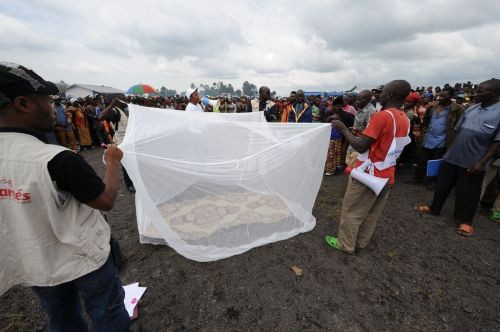'Remarkable Progress' in Fight Against Malaria

Nearly a third of the 108 malaria-affected countries and territories are on course to eliminate the illness over the next 10 years, according to a report from the World Health Organization (WHO).
Malaria is endemic in areas around the earth's equator, stirking most heavily in sub-Saharan Africa.
The latest report from the WHO was released Monday by the Roll Back Malaria Partnership ahead of a Malaria Forum in Seattle hosted by the Bill & Melinda Gates Foundation.
"The world has made remarkable progress with malaria control," said Dr. Robert Newman, Director of the Global Malaria Program of the WHO.
"Better diagnostic testing and surveillance has provided a clearer picture of where we are on the ground - and has shown that there are countries eliminating malaria in all endemic regions of the world," he added.
WHO continually monitors this progress and ensures that these countries are fully supported in their efforts to be malaria -free, explained Newman.
According to the report, 3 countries have already been certified as malaria-free in the last 4 years. Seven countries have recently ended malaria and are working to prevent re-introduction and another 10 countries are currently monitoring transmission to arrive at zero malaria cases.
Today there are still an estimated 781,000 deaths annually from malaria, a disease which is entirely preventable and treatable.
Malaria affects as much as 40 percent of the world's population, but most deaths occur in Africa where a child dies of the disease every 45 seconds, according to the WHO.
The disease also hinders social and economic development among the poorest communities.
Malaria control tools, include insecticide treated nets, indoor residual spraying, diagnostic testing, and effective malaria treatments.
"In 2011, with the highly effective interventions we have available, no one should die from malaria," Newman said.
"If we can achieve universal access to and utilization of these measures, while making the required investments in people and health systems, as well as in the research required to develop tomorrow's transformative tools, then the country and regional goals of malaria elimination, and the global goal of eradicating this ancient scourge, will become a reality."



























